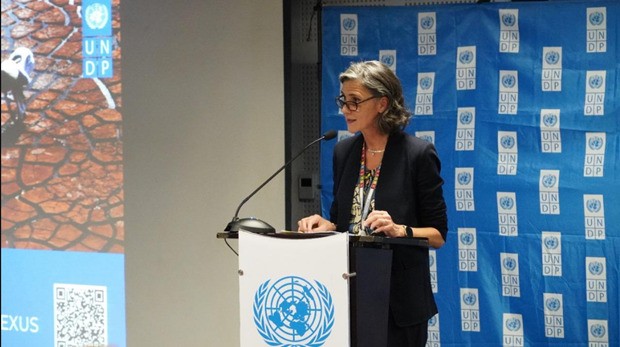
UNDP pledges to help Vietnam in human rights-based approach to climate action
Latest
 |
| UNDP pledges to help Vietnam in human rights-based approach to climate action: UNDP Resident Representative in Vietnam Ramla Khalidi speaks at the event. (Photo: VNA) |
This is a follow-up to an international workshop co-hosted by UNDP and the Vietnamese Ministry of Foreign Affairs in July on the climate change impacts on the human rights enjoyment of the most vulnerable.
“Norway appreciates the work of UNDP and partners to enhance the understanding of the interdependence and interlinkages between climate change and human rights,” said Deputy Ambassador of Norway to Vietnam Mette Moglestue.
“A clean, healthy, and sustainable environment is the foundation of human life, and the protection of the environment is a necessary precondition for the enjoyment of human rights for present and future generations”.
With the support by the Embassy of Norway, UNDP introduced a new policy paper on impacts of climate change on human rights and how to address the impacts.
The study provides an overview of human rights impacts and roles and responsibilities of stakeholders based on UN normative instruments on Human Rights and Climate Change.
UNDP recommended policy makers and government authorities at all levels to ensure that climate change adaptation and mitigation policies and measures, including the Just Energy Transition, are effectively grounded on a human rights-based approach that put people’s rights at the centre.
Addressing the discussion, UNDP Resident Representative in Vietnam Ramla Khalidi offered reflections and recommendations for a more inclusive and rights-based approach to climate action in Vietnam to ensure that no one is left behind.
“UNDP is deeply committed to supporting stakeholders in Vietnam to ensure the planning for climate change adaptation, mitigation, just energy transition and environmental protection, are aligned with human rights standards,” she said.
“UNDP is passionate about supporting Vietnam’s commitment to net-zero emissions by 2050 and getting there in an inclusive and participatory way that leaves no one behind.”

















